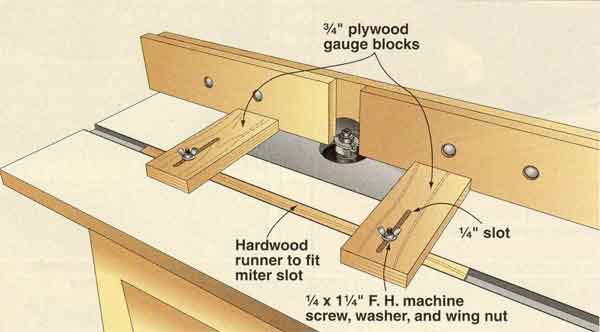How the radial-arm saw lost its groove

Over the years, the kerfs in my saw's tabletop have become less effective forboth purposes as they have worn wider from realignments and using different blades. Rather than replace the top, which is time-consuming and costly, I filled the too-wide kerfs with two-part epoxy, and then sanded them smooth.
óJim Overton, East Hampton, N. Y.
Gauge blocks for faster rail-and-stile setup

After perfecting the fence location and locking it in place, I loosen the wing nuts on the jig, set it in the miter slot, slide the blocks up to the fence as shown, and tighten the wing nuts. Finally, I remove the jig, and begin routing.
If you don't have a miter slot in your router table, you can still use the jig. Just make the gauge blocks longer and guide the hardwood runner against the front edge of the tabletop.
óJohn Passamonte, Merritt Island, Fla